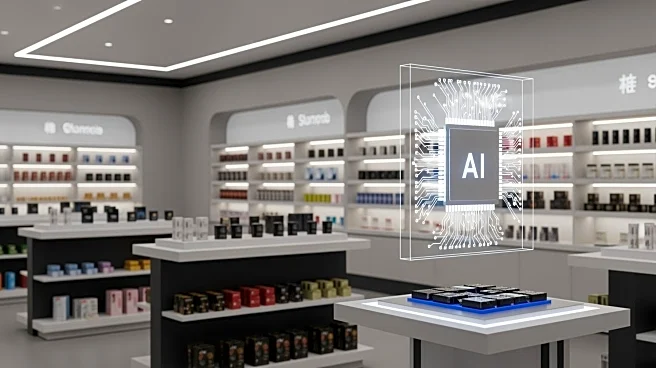What's Happening?
Target is implementing a turnaround strategy focused on reversing declining sales and traffic, with technology playing a pivotal role. Current COO and incoming CEO Michael Fiddelke has emphasized the need
to leverage technology to improve efficiency and guest experience. Target is utilizing generative AI across its operations, including merchandise development and its third-party marketplace, Target Plus. The AI-powered trend intelligence platform, Target Trend Brain, aids in product development by combining merchant creativity with AI efficiency. Additionally, AI is used to review applications from sellers for Target Plus, ensuring curated product selections.
Why It's Important?
Target's adoption of generative AI signifies a strategic shift towards technology-driven operations, aiming to enhance merchandising authority and improve customer experience. By integrating AI into product development and marketplace operations, Target seeks to accelerate innovation and maintain competitive advantage. This approach may lead to increased efficiency, better trend responsiveness, and improved product offerings, potentially boosting sales and customer satisfaction. The focus on AI also highlights Target's commitment to workforce development, as it trains employees to utilize AI tools effectively.
What's Next?
As Target continues to integrate AI into its operations, the company may expand its use of technology to other areas, such as supply chain management and customer service. The upcoming holiday season will test the effectiveness of Target's AI-driven demand forecasting engine, potentially influencing future strategies. Target's collaboration with OpenAI and other tech partners suggests ongoing efforts to enhance its digital capabilities and explore new opportunities for growth.
Beyond the Headlines
Target's embrace of AI reflects broader retail industry trends, where companies are increasingly using technology to drive innovation and improve operations. This shift may lead to changes in consumer expectations, as retailers offer more personalized and efficient shopping experiences. Target's approach also raises questions about the ethical implications of AI in retail, including data privacy and workforce impact.











